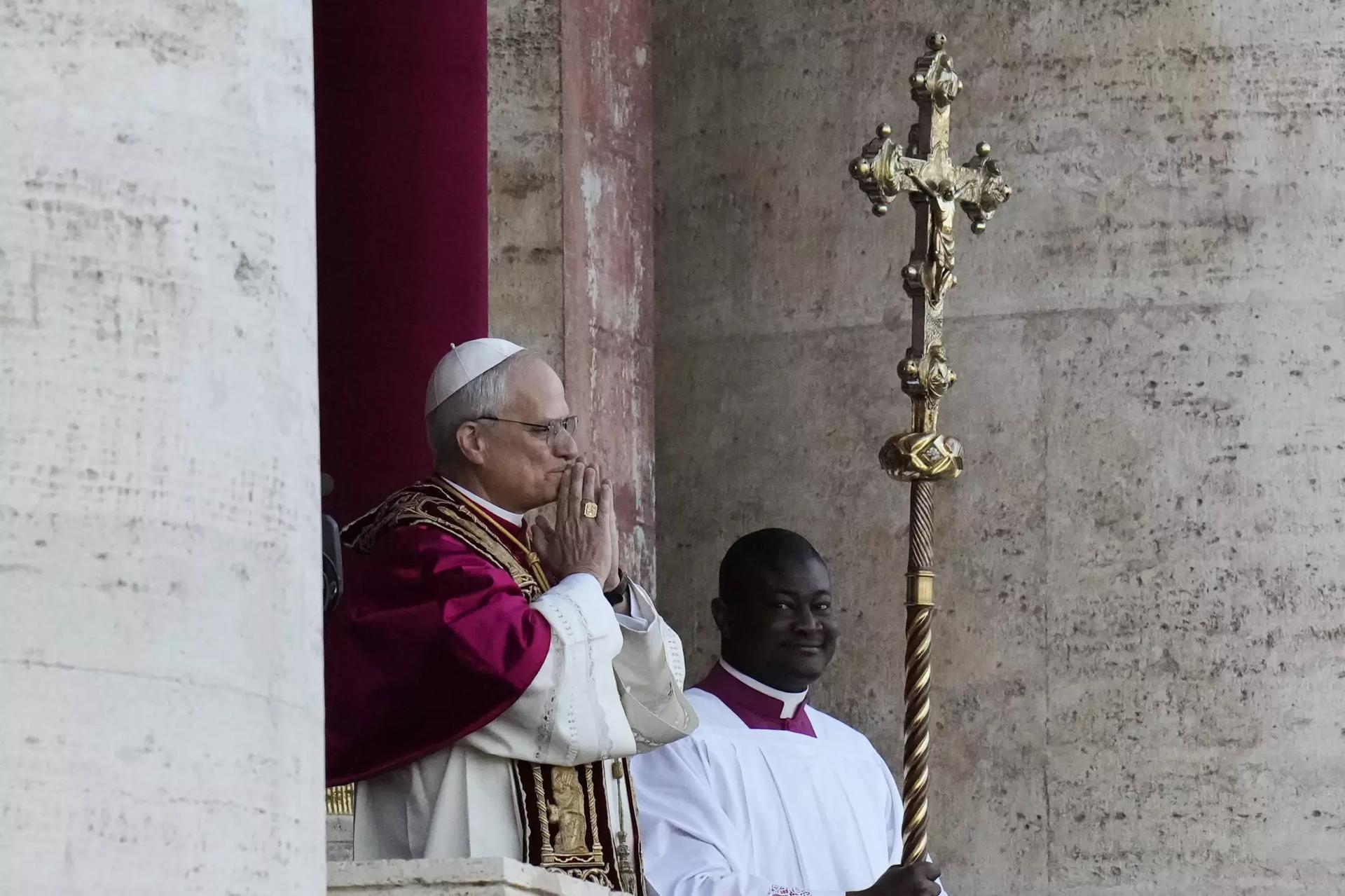If you know anything about Pope Leo XIV, it is likely that he chose his name in part as a nod to his predecessor, Leo XIII, the father of modern Catholic social doctrine.
Leo XIII’s seminal 1891 encyclical letter, Rerum novarum, subtitled On the rights and duties of capital and labor “addressed the social question in the context of the first great industrial revolution,” as Leo XIV explained in remarks to the college of cardinals assembled in the Vatican’s New Synod Hall on May 10, just two days after his election.
“In our own day,” Leo continued in those remarks, “the Church offers to everyone the treasury of her social teaching in response to another industrial revolution and to developments in the field of artificial intelligence that pose new challenges for the defense of human dignity, justice and labor.”
Leo is therefore certainly taking his inspiration from his predecessor and namesake, but it would be a mistake to think Leo is interested in hitting the reset button on Catholic social teaching as it has developed over the last 135 years.
In subsequent addresses – several of them – Leo XIV has made it clear that he intends to recover the genius of the Church’s reflection on human nature and bring the wisdom found therein to bear on problems – like artificial intelligence – that are already proving to be disruptive on a scale and with a scope not seen since the days of Leo XIII.
Leo XIV, in other words, intends to leverage what Pope St. Paul VI called the Church’s “expert[ise] in humanity” in order not to solve social problems but to address 21st century disruption in a manner that upholds human dignity and vindicates human nature.
“Authentic human flourishing,” Leo XIV told a group of Catholic lawmakers visiting the Vatican on August 23, “stems from what the Church calls integral human development, or the full development of a person in all dimensions: physical, social, cultural, moral, and spiritual.”
“This vision for the human person is rooted in natural law,” Leo said, “the moral order that God has written on the human heart, whose deeper truths are illuminated by the Gospel of Christ.”
The notion of natural law is one of the philosophical ideas of which Christianity has been a carrier and a caretaker, but it is these days frequently maligned – and misunderstood – as a niche Christian notion, some tenets and consequences of which are nevertheless presupposed even by those who more-or-less explicitly reject it.
Perhaps that is why Leo XIV has done two interesting things when discussing natural law during his still very young pontificate.
First, in a June 21 address to the International Interparliamentary Union, Leo XIV made a point of using the pagan Roman philosopher-statesman, Marcus Tullius Cicero, to explain natural law as “right reason, in accordance with nature, universal, constant and eternal, which with its commands, invites us to do what is right and with its prohibitions deters us from evil.”
“Natural law, which is universally valid apart from and above other more debatable beliefs,” Leo XIV said, “constitutes the compass by which to take our bearings in legislating and acting, particularly on the delicate and pressing ethical issues that, today more than in the past, regard personal life and privacy.”
He then invoked the UN’s 1948 Universal Declaration of Human Rights, calling it “part of humanity’s cultural heritage.”
“That text, which is always relevant,” Leo said, “can contribute greatly to placing the human person, in his or her inviolable integrity, at the foundation of the quest for truth, thus restoring dignity to those who do not feel respected in their inmost being and in the dictates of their conscience.”
Even if one does not share the pope’s convictions in matters of religion, it is difficult to take a position opposing those ends. Leo XIV, in other words, is working to reframe a public moral debate that is ultimately over core notions of anthropology – human nature – about what the human being really is.
The second interesting thing Leo XIV has done in these regards, is to say in essence that Catholics want pretty much the same things as everyone else.
In his address to the International Catholic Legislators Network of August 23, Leo XIV explained that authentic human flourishing requires virtuous living and healthy communities in which people enjoy “not only what they have, what they possess, but also who they are as children of God.”
“It ensures the freedom to seek truth,” Leo said, “to worship God and to raise families in peace. It also includes a harmony with creation and a sense of solidarity across social classes and nations.”
People hearing the pontiff in these and other similar remarks may not suddenly board the barque of St. Peter, but you’d be hard-pressed to find anyone willing to make an explicit case for vicious living and diseased communities in which people do not enjoy what they have or who they are.
Leo XIV’s framing of the matter does raise a series of questions, which cannot be postponed indefinitely: What is virtue? What makes a community healthy? What are the material conditions for human flourishing? Those are a few, but the question underlying all of them: What is human being?
For all that, Leo XIV is not a culture warrior or partisan, but a rhetorician in the best sense of the term. That ought not be too much of a surprise – he calls himself a “son of St. Augustine” and Augustine was one of history’s greatest masters of rhetoric – but it is going to take some getting used to.












